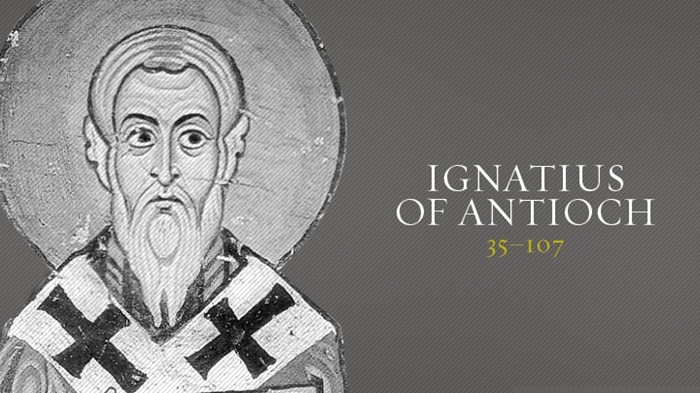We read the Bible and forget that the events took place over thousands of years. From approximately 2,000 BC to around 587 BC, the Bible records approximately 74 battles and various campaigns and lists *of victories of the kings of Israel and later, Judah. Some of these were in “wars” or parts of campaigns, so could be grouped together, just as Gettysburg, Antietam, Shiloh, etc., were all battles fought in one major conflict. It appears that there were roughly 90–100 conflicts that took place (it’s hard to be accurate since some of the lists* may include battles already listed) within a 2,600 year period, at least that are recorded in the Bible that involved “God’s people”, from Abraham to Zedekiah, the final conflict between Judah and Babylon. Many, if not most, of these were also quite small engagements, skirmishes, struggles over land, passage through territory, mercenary engagements, etc. It is doubtful that there were very many engagements that cost more than a few thousand lives (though there was one battle between Israel and Aphek that resulted in the death of some 300,000 Israelite soldiers).
The following article from a skeptic website gives a total number of 25 million “killed by God” through the entire Bible (How many has God killed? Complete list and estimated total (Including Apocryphal killings)). I do not see where he got this estimate, which is highly speculative; for example, the author gives the number of people killed in the flood at 20 million. It is impossible to know the population of the entire earth at that time. If the Bible chronology is anywhere near accurate, the flood occurred in app. 3,000 BC. This, too, is speculative, and there are many, including myself, who believe in a great local flood, not worldwide (cf. Psalm 104:9 – Does it refer to the Original Creation or the Flood?; The Genesis Flood).
Regardless, the Biblical account (plus the Apocrypha), according to the article, gives a total of approx. 2.8 million “killed by God” throughout a 3,000 year period. Consider that “at least 108 million people were killed in wars just in the twentieth century.” “‘What Every Person Should Know About War’” Between 1941–1944, the Siege of Leningrad claimed 1.12 million casualties over a period of just around 872 days.
The God of the Old Testament is the same God of the New Testament. He is compassionate and merciful always. He is also, by our standards, unbelievably patient. For example, one site that may possibly be that of ancient Sodom bears evidence of near continuous habitation for some 3,000 years (fyi, if you read Ezekiel 16, you will see that God’s anger with Sodom had much more to do with their arrogance, greed, and pride than their sexual immorality, though that was definitely one reason). They did not reach their “pinnacle” of wickedness overnight (the inhabitants desired Lot’s guests be given to them so that they could rape them!), and even up to the last moment, the Lord bargained with Abraham to save the city. Abraham stopped at ten righteous persons. Could he have bargained further? Down to just one? Probably not, but God did spare the righteous anyway.
The point is that God is patient. The skeptics wail about the “genocide” of the Canaanites, but they had been warned for 400 years what was coming, and it was God’s desire to drive them out without bloodshed, but the stubbornness and complaining of the Israelites eliminated that idea (see Exodus 23:20–33). In Joshua 24, Rahab, a resident of Jericho, tells the Hebrew spies who were scouting out the city before they attacked it, “I know that the Lord has given you this land and that a great fear of you has fallen on us, so that all who live in this country are melting in fear because of you. We have heard how the Lord dried up the water of the Red Sea] for you when you came out of Egypt, and what you did to Sihon and Og, the two kings of the Amorites east of the Jordan, whom you completely destroyed. When we heard of it, our hearts melted in fear and everyone’s courage failed because of you, for the Lord your God is God in heaven above and on the earth below.” Why, if this was the case, did they not flee, surrender, or repent?
These were a people ( the Canaanites) who sacrificed their children to the god Molech (Moloch, Milkom) by placing them bound—and alive—on the outstretched bronze hands of the idol, which had been super heated to glowing, fiery red by an internal furnace. Historians say that when this was done, instruments were blared and the people sang as loud as possible to drown out the screams of the burning children. The charred remains of the bones of children sacrificed in similar fashion to the god Cronus (Ba’al Hammon) have been found in Carthage dating back to 310 BC. (Carthaginians sacrificed own children, archaeologists say) The Carthaginians were Phoenicians, descedants of the same people who settled Canaan. The Aztecs, Inca, Maya, Moche, Timoto-Cuica people of the Americas all practiced child sacrifice, as well as adults and captured enemies. “An ancient mass grave in Kenya reveals a brutal, violent end for a group of humans that lived 10,000 years ago. According to a paper published Wednesday in Nature, this may be our oldest ever evidence of human warfare.” (https://www.washingtonpost.com/n…)
Israel, from the time of their deliverance from bondage in Egypt, to the last war with Babylon, a period of some 700 years, were constantly bickering, moaning, complaining, killing each other, rebelling against God, and often engaging in the same child sacrifice as their neighbors and those they conquered. Sure, there were periods of goodness and stability, unity, but for 700 years, God endured their periods wickedness, which just got worse and worse. The prophets he sent to warn them either laughed at them or had them killed, or both. But God gave them chance after chance to repent. Indeed, the Word is true, that
“The Lord is compassionate and gracious,
slow to anger, abounding in love.
He will not always accuse,
nor will he harbor his anger forever…”
Psalm 103:8–9
It is interesting that many people look upon the destruction of the Canaanites (which the Israelites failed to complete anyway!) in horror— “God approved genocide! Murder!”, but never flinch at the millions of innocents killed in the wars of the 20th and 21st centuries. Just in WWII, between 48 and 58.5 million civilians died from military activity/crimes against humanity and war related famine and disease. The US, the “good guys,” killed approx. 100,000 civilians in the raid on Tokyo alone.
It is also telling that the same skeptics will ask why, if God exists and is a compassionate God, he doesn’t intervene in events like the Holocaust. Note the inconsistency, the hypocrisy: when God doesn’t intervene to stop the evil of the Holocaust, he’s either impotent, evil himself, or doesn’t exist, but when he does intervene via a “just war” against a depraved people like the Canaanites and their “Holocaust”, he’s a monster!
Finally, according to the Biblical account, most scholars place the date of the flood approximately 6,000 years after Adam. Now, I am an “old earth” creationist; I have no idea when Adam was created* and disagree with the “young earthers” on the age of the earth/universe and the time of the creation, but just taking the Biblical dates and all at face value, 6,000 years seems about right…(maybe). So that’s 6,000 years the peoples of the earth had to become so wicked that God saw the need to wipe them all out and start over with Noah and his family. Note that the text says that human generated evil and immorality began almost immediately after the Fall (the murder of Abel by Cain) and simply escalated. Just five generations after Cain, his 5 times great-grandson, Lamech, is proudly more violent than his forebear. Just before the flood, the text says that “The Lord saw how great the wickedness of the human race had become on the earth, and that every inclination of the thoughts of the human heart was only evil all the time.” (Genesis 6:5; emphasis mine). I can only imagine a combination of the Canaanites sacrificing their children, the horrors of the Holocaust, the sexual slavery of the slave trade, war, genocide, widespread torture and oppression…all rolled up into one terrifying society that was the pre-flood world.
If it helps ameliorate anyone’s feelings at all, in the aforementioned Ezekiel passage, God actually promises to restore even Sodom to its former glory, sometime in the future. This is at least indicative of God’s heart felt desire for reconciliation and restoration—for all people.
*
Most people make the mistake of just adding the years together in gen 5 to come to some sort of calendar. The problem with that is that the people listed in Gen 5 and 11 are most of the time not father/son relationships. That’s what Bishop Ussher assumend when he came up with his famous calendar. The word begat is used I believe every time. So and so begat so and so. However just because someone was “begat” doesn’t mean that person was the direct son of the person who begat him. It could be a son, grandson, great grandson, etc.
Gen 11:12 And Arphaxad lived five and thirty years, and begat Salah
Was Salah an immediate son of Arphaxad? No. How do I know?
Luke 35-36 Which was the son of Saruch, which was the son of Ragau, which was the son of Phalec, which was the son of Heber, which was the son of Sala, Which was the son of Cainan, which was the son of Arphaxad, which was the son of Sem, which was the son of Noe, which was the son of Lamech
Cainan came between them. Cainan was the father of Sala, not Arphaxad. So “begat” just means a direct relative.








